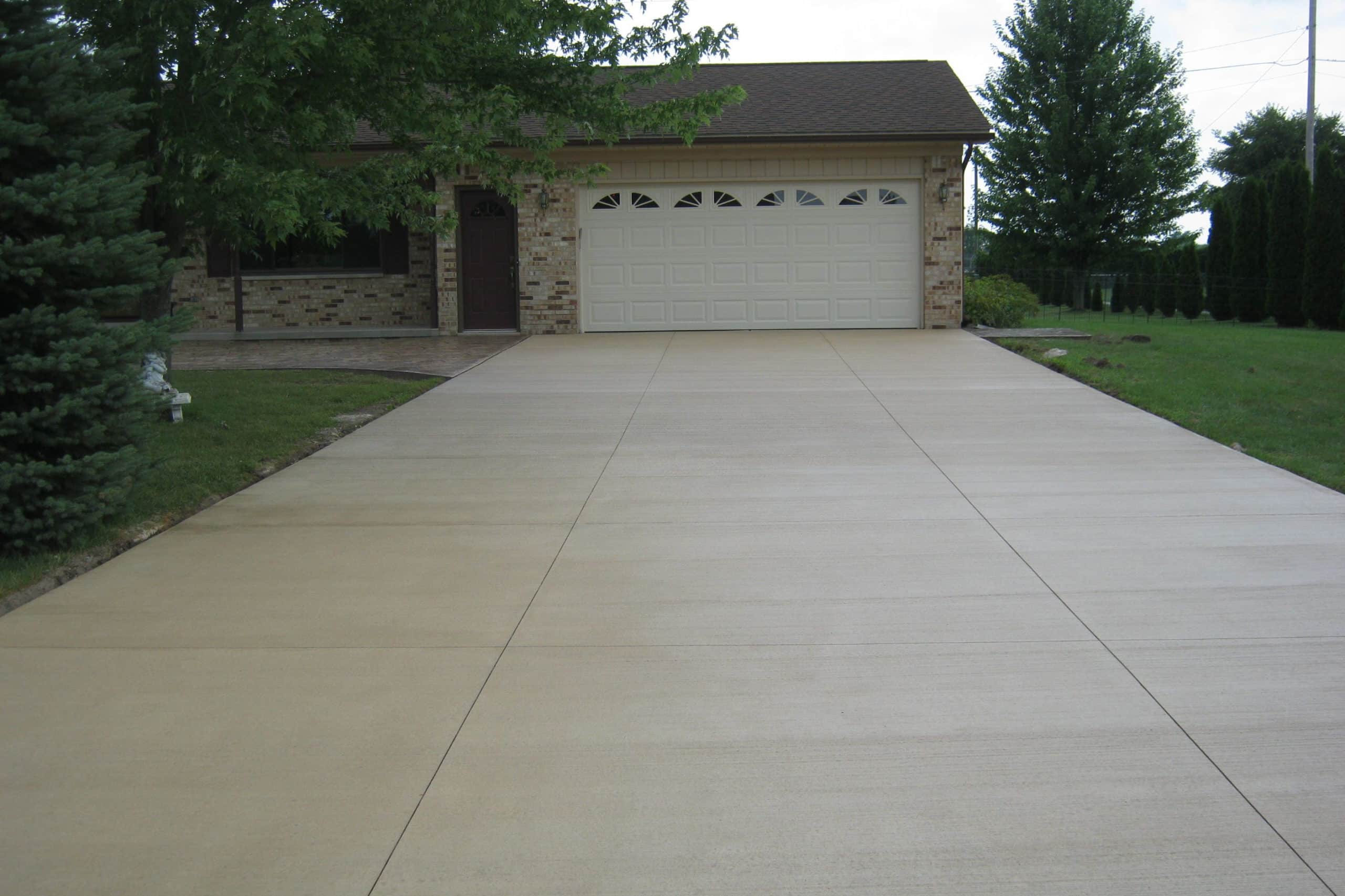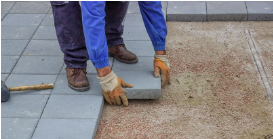Concrete Driveway Colorado Springs is great for homeowners looking to add durability and curb appeal. It can be stained or colored to stand out from the rest of the driveway. It also resists oil and grease stains. However, sealing and finishing your concrete driveway is important to prevent cracks.
Concrete driveways are eco-friendly, durable, and low maintenance. They can withstand heavy vehicles, freeze-thaw cycles, and extreme temperatures. However, they require proper construction and regular sealing to avoid unsightly cracks and other problems. The concrete mix must be selected carefully to suit the local climate and soil conditions. It is also important to use professional contractors who follow proper concrete placement, curing, and finishing techniques.

A concrete driveway is less environmentally harmful than asphalt, which is made from oil and other petroleum byproducts. It uses renewable resources, such as water, rock, and sand. Concrete is also recycled and can be used for other purposes.
A green driveway is an excellent way to reduce pollution around your home. A porous surface allows rainwater to flow through the soil instead of running off and polluting waterways. You can choose from various green driveway options, including permeable pavers and gravel.
Another option is a crushed-stone driveway. This material is easy to install and maintain, but you should use local stones and verify that the stone provider followed environmental protections when harvesting the stone. In addition, a crushed-stone driveway can be topped with sand or gravel to increase permeability and help the rainwater soak into the ground instead of runoff.
A concrete driveway can enhance your property’s curb appeal and improve its value. It can last decades and is easier to maintain than other materials, such as asphalt. It is also easy to recycle. In addition, it requires fewer chemicals during installation, which is better for the environment. Concrete is also a great choice for HOAs that require sustainable decisions.
Concrete is a durable material that can withstand years of heavy use. It is also more resistant to temperature fluctuations than asphalt and can withstand a maximum pressure of up to 6,000 pounds per square inch (PSI). Its longevity is further enhanced by using proper concrete mix designs and the curing process. Additionally, adding rebar helps reinforce the concrete even more, which is a good idea if you plan to park heavy vehicles on your driveway.
While a concrete driveway may last for decades, it must be periodically cleaned and sealed to ensure water doesn’t seep through the surface. It is also important to regularly inspect your driveway for cracks and other signs of damage and repair them as soon as possible. A cracked and damaged driveway can easily become an eyesore. Fortunately, professional contractors can repair your driveway quickly and efficiently.
A concrete driveway can increase the value of your home. Many prospective buyers consider it a premium feature and will be willing to pay more for a property with a solid, well-maintained concrete driveway. However, the lifespan of your concrete driveway depends on the climate in which you live and the maintenance practices you follow.
Concrete can withstand the normal traffic of a residential driveway, but it isn’t designed to support large work vans or construction equipment. It is also prone to heaving in colder climates and can be damaged by salt, grit, and de-icing chemicals. If you have a concrete driveway, it’s important to limit the number of vehicles you park on it and maintain a minimum thickness of 4 inches.
One of the most common causes of cracking in concrete is poor installation. The contractor should place the concrete in a level form and tamp it down to eliminate air pockets. In addition, the contractor should add rebar to strengthen the concrete and ensure it is poured away from the foundations of your home and specific landscaping. The concrete should also be protected from the elements and properly cured, which requires a long period.
Concrete is a durable material that can last for decades if well-maintained. It comprises cement, sand, and gravel (or stones). The mixture is chemically combined during hydration to create a strong, long-lasting substance. This durability is one reason concrete driveways are cost-effective and easy to maintain.
Unlike asphalt, which can crack and pit over time, a concrete driveway will remain in good condition for years. You should perform regular cleanings and inspections to keep your driveway looking its best. This will ensure that any issues are addressed quickly and efficiently.
When maintaining a concrete driveway, the first step is patching any cracks or holes immediately. You should also remove any weeds or grass that have grown up around the concrete. Keeping the weeds and grass trimmed will prevent them from pushing up on the surface of the concrete, which can cause damage. Using a quality sealer on your concrete driveway once a year is also important. This will protect the surface from water and staining, making cleaning easier.
A concrete driveway can also stand out by stenciling, etching, or stamping. This is a great option to add a custom touch to your home. However, it is important to remember that hot temperatures can damage the stamps and inks.
It’s also a good idea to consider where the water flows on your property before installing a concrete driveway. If the water drains toward your driveway, it can cause erosion and cracking. It’s a good idea to dig ditches or install french drains that channel the water away from your driveway to avoid this.
Lastly, it’s important to remember that a concrete driveway will not be as warm as an asphalt driveway in the middle of the day. It would be best to avoid de-icing agents on your concrete driveway because they can damage the surface. However, with some care, your concrete driveway will look new for years!
A concrete driveway is a smart investment that can increase the value of your home. Its durability and low maintenance costs make it a wise choice over other materials. Moreover, it is easy to repair if you have any problems. However, you must remember that a concrete driveway requires careful planning before installation. You should prepare the site properly and clean it to reduce the cost of construction. Additionally, you should hire a professional contractor for the job. A professional will help you select the best materials and ensure they are constructed to your specifications.
The first thing that visitors see when they arrive at your house is your driveway. It should be welcoming and attractive so that potential buyers are convinced to view the rest of your property. A driveway made of concrete is durable, long-lasting, and can withstand heavy vehicles. It will also add curb appeal to your house.
If you are looking for a budget-friendly option, consider plain gray concrete. This material may not win any design contests, but it is practical and budget-friendly. It can last for decades and requires less maintenance than asphalt. In addition, it reflects heat rather than absorbing it, making it a great choice for warm-temperature areas.
To get a precise estimate of the cost of a concrete driveway, it is best to consult with a local concrete contractor. They will provide you with a cost estimate and explain the process. The price will depend on the location, season, and other factors. For example, the cost of a concrete driveway will be higher in urban areas. It will also be more expensive in the winter, as labor rates are higher.
The cost of a concrete driveway will vary depending on the design and customization. It will be more expensive if you want to include an intricate pattern or special colors. If you use a truck or other heavy machinery, a concrete driveway will be more suitable than a gravel one.
A concrete driveway will require a concrete apron that connects the driveway to the road. This apron is usually the same width as the driveway, and it can be built to spec for an average of $3 to $10 per square foot.

